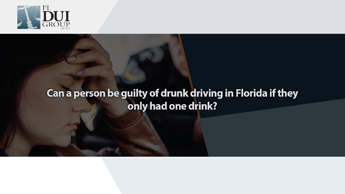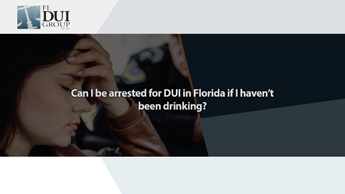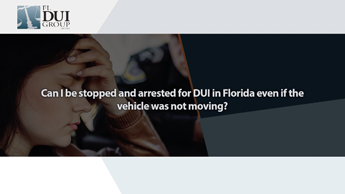Florida Field Sobriety Test Attorney
Orlando DUI defense attorney tells you what you need to know
By obtaining a driver’s license and the ability to drive lawfully on Florida roads, you’ve given your implied consent to submit to a chemical breath test when ordered to by the police. Refusing to test results in the immediate suspension of your driver’s license for one year, or 18 months if you have previously refused a test.
It is important to understand that these laws only apply to a chemical test of your breath or blood alcohol content, and not to other tests the police may want you to take. Police officers must have probable cause to make you take a breath test, but they don’t always have enough reason during a traffic stop to make you test. They’ll prolong the stop as long as they can to see if they observe any behavior they can say gives them enough cause to make you take a breathalyzer. One of their chief strategies is to get you to take a series of field sobriety tests. Learn more about these tests and your rights to refuse them below, and contact the Florida field sobriety test attorneys at FL DUI Group for a free case evaluation after a DUI arrest in Orlando or central Florida.
What are Field Sobriety Tests?
Field sobriety tests, or FSTs, refer to a number of different tests police use to decide whether your ability to drive a vehicle may be impaired. Some of these tests have scientific sounding names like the “horizontal gaze nystagmus” test, while others, like the “one-leg stand” or the “walk-and-turn,” don’t sound very scientific at all. The fact is that all of these tests are of questionable scientific validity. For instance, they can’t be objectively scored; rather, it is left up to the subjective decision of the police officer to decide whether you “passed” or not. Some would go so far as to say that these tests are designed for you to fail and to give the police probable cause to make you take a breath test.
Three FSTs have a training and scoring system to give them a semblance of reliability. These tests were originally validated by the National Highway Traffic Safety Administration (the NHTSA) as reliable for a blood alcohol content (BAC) of .10 or higher. As laws changed and the legal BAC threshold dropped, these tests were “revalidated” when a group of seven officers collected data during their routine patrols and adjusted the FST scoring so they would line up with the results of actual chemical tests for blood alcohol content. Although “validated,” these standard tests are neither approved nor certified by the NHTSA in any official capacity.
The three so-called “standard” FSTs are:
Horizontal Gaze Nystagmus – You are told to follow a pen, flashlight beam or the officer’s finger with your eyes as the officer moves the object back and forth across your field of vision. The officer is supposedly looking for any jerking or involuntary movement of your eyes as they follow the object. This movement of the eyes is called nystagmus and can be due to intoxication or a number of different diseases, as well as occurring naturally in some people.
Walk and Turn – Here you are required to walk in a straight line heel-to-toe for nine steps, turn around on one foot, and return in the same manner. There are a number of different factors the officer is watching to determine whether you may be impaired by alcohol, such as how well you keep your balance, if you use your arms to help you balance, if you step off the line or stop and start again, if you take the wrong number of steps, and others. Making any missteps because you are nervous, if it’s windy or dark outside, or the test is unconducted on a rough or uneven surface, may nevertheless give the police the ammunition they need to make you take a breath test.
One-Leg Stand – For this test, you’ll be required to stand with one foot six inches off the ground while you count by ones from 1,000 until you are told to stop, generally for about 30 seconds. The officer will be judging how well you balance yourself without using your arms, swaying, hopping, putting your foot down or other strategies. Remember that you have to concentrate both on counting and keeping your balance at the same time. Try taking this test completely sober and see how well you’re able to balance on one foot for a full thirty seconds without steadying yourself. You’ll likely find it’s not that easy, and the results vary depending upon which foot you use.
There are other “nonstandard” FSTS as well, such as requiring you to tilt your head back with your eyes closed and touch your finger to your nose or to count backward or recite the alphabet starting at random letters or numbers. Since they are lacking even in NHTSA validation, these tests should never be performed.
All of the standard tests can be affected by factors such as disability, injury, illness, age, nervousness, and external conditions. The police are supposed to ask you about limiting conditions you may have before they conduct any FSTs, but they don’t always do so. What is the significance of how well you perform an FST after drinking when the police have no way of knowing how you would perform them when you weren’t drinking? The lack of a baseline measurement makes these tests very difficult to score with any reliability.
What do you do if asked to perform these tests?
You can legally refuse FSTs without being arrested or having your license suspended. However, the fact you refused can be used against you, along with your demeanor/behavior during the encounter, to suggest you were impaired at the time. Passing the test, on the other hand, as well as your behavior and conduct during testing, could possibly keep you from being arrested or act in your favor if you are tried for DUI.
If you don’t know your rights, you likely don’t know you can refuse FSTs, and the police are not likely to tell you. You may think their “request” is really just a polite command, or that refusing will make you look guilty. Remember, field sobriety tests are designed to be failed, and the purpose of their use is to give the police a reason to require you to take a breath test. Consider these facts when being asked to perform FSTs during a DUI traffic stop.
“Failed” a Field Sobriety Test? Call FL DUI Group in Orlando for a Free Consultation.
If you’ve been arrested for DUI in Orlando or central Florida, call FL DUI Group at 321-256-1141 for a free case evaluation with a skilled, experienced and successful Florida DUI defense attorney.








